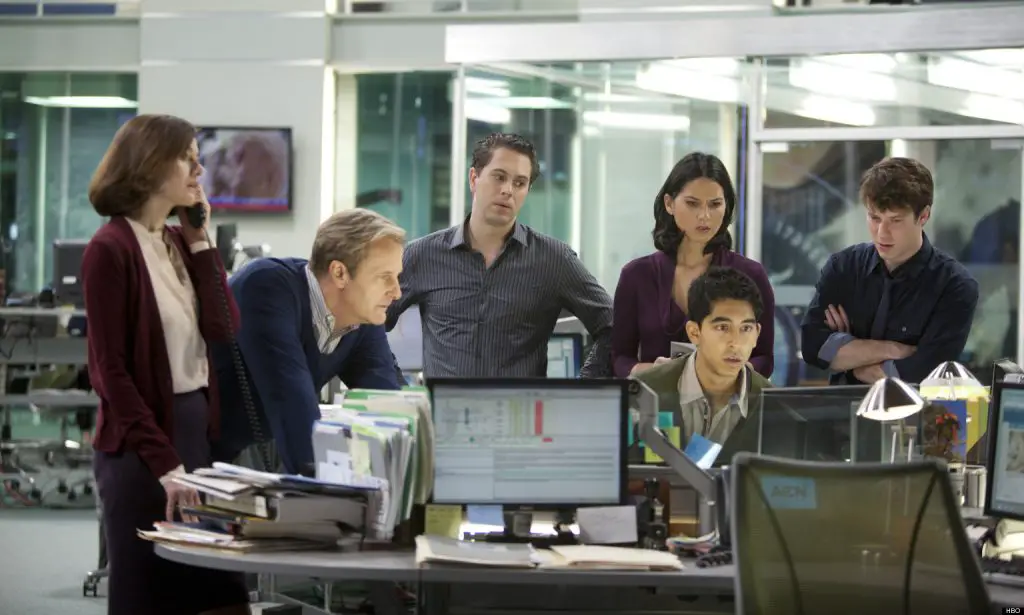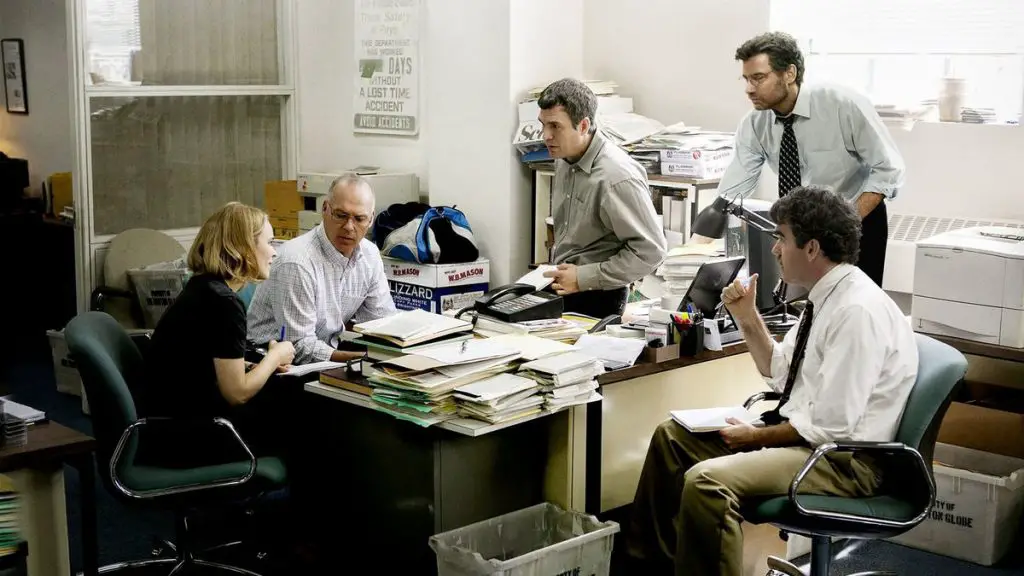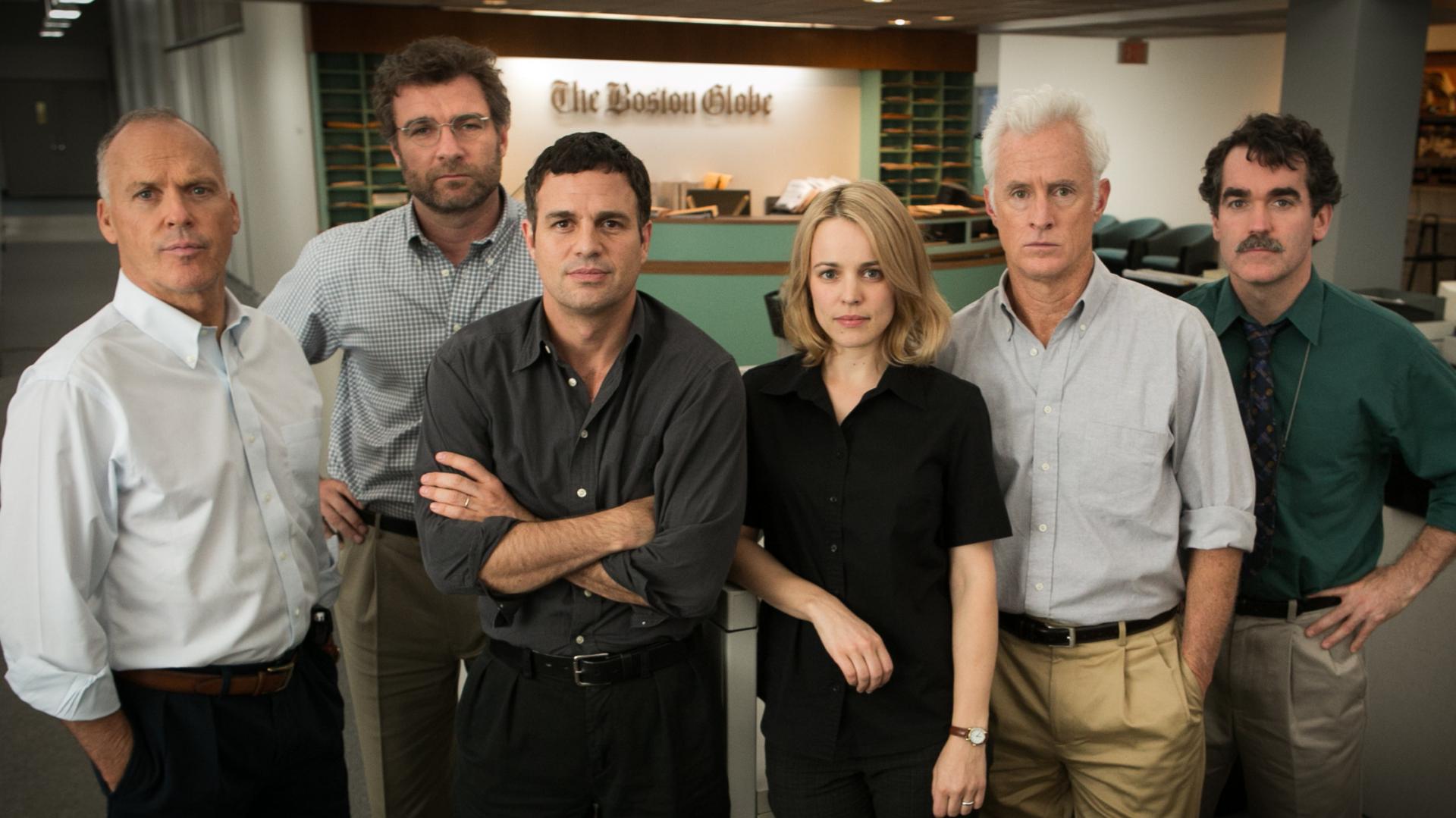Consuming the news on multiple platforms becomes overwhelming, even for journalism students and journalists. Becoming burnt out on the news after learning how to process and digest it is easy to do, especially for journalism students. Sometimes even the writing process is enough to bog down a journalist, and even their burning passion for reporting can start to fizzle out during the revising, editing and repeating process.
While studying journalism, a well-deserved break from the news is always advised. So, if you’ve ever left feeling uninspired by the monotonous grind of the process, give one of these three productions — okay, technically one show and two movies — a watch to rekindle your journalistic passion.
The Newsroom (2012-2014)
The TV series created by Aaron Sorkin follows a smart, self-centered and often rude news anchor Will MacAvoy as his company brings in a new news team to save his show’s ratings. The two-season-long show follows the news team as they cover real news events while rediscovering their journalistic ethics and avoiding too much influence from viewer ratings. They cover events from the 2000s, such as the BP oil spill, Osama Bin Laden’s killing and NSA spying.
The battle between maintaining viewers while reporting truthfully has been a long-time struggle for TV broadcast journalism, and “The Newsroom” does an excellent job of portraying the conflict. Filled with inspiring monologues on why news matters, and just enough love, drama and dry humor, “The Newsroom” keeps you tied in and invested in the lives of the news team. One of the most prominent monologues happens in the first episode, a clip that became viral on Facebook, in which MacAvoy makes a series of points debunking the idea that America is the greatest country in the world. If this unpopular opinion does not hook you, some of the other monologues might.

There are some strong female characters on the show, including the witty and charming Mackenzie McHale, MacAvoy’s sometimes better half. In order to convince him to let her produce his new show, McHale gives an inspiring speech about the importance of a well-informed electorate and its importance to a democracy. This speech is a go-to for any journalist who might be feeling less than noble or motivated about what their purpose is.
At only two seasons long, the show is easy to binge and fall in love with. “The Newsroom” will leave you ready to take on your next story. The arguments and points made about journalism, integrity, ethics and purpose are enough to relight anyone’s fire, or at least spark a discussion. Find “The Newsroom” on Amazon Video, iTunes, Google Play and HBO Go. Some subscriptions will allow you to watch some seasons free.
Spotlight (2015)
The 2015 Oscar-winning movie based on a true story follows the spotlight investigative team from The Boston Globe in the early 2000s. Producers Nicole Rocklin and Blye Faust preferred real life stories, and when they looked into this one, they knew making a movie about the journalists who exposed the Roman Catholic Church was important. The movie relives the spotlight team’s struggles and concerns as they uncover the largest Catholic scandal in Boston. The team exposed the Catholic Church in protecting and relocating priests who molested children as well as paid off or cut off victims and their families. The movie perfectly builds the importance of journalists, who were all raised Catholic, exposing the church and now-dead Cardinal Bernard Law, the archbishop emeritus of Boston until he resigned following the exposure of the sex scandals in his archdiocese.

Because of their commitment to telling the story accurately, during the production of the film, the real-life journalists were asked to work with the actors portraying them in the important exposé. If the seriousness of this being a true story isn’t enough, the gravity of what it meant for Catholic journalists to take on the Catholic Church in a Catholic town should ignite some passion for integrity and truth, even when the odds are against you.
“Spotlight” is now available on Netflix for free, as well as on other streaming services for rent, such as Amazon Video, Google Play, iTunes and YouTube.
Nobody Speak: Trials of the Free Press (2017)
“Nobody Speak,” directed by Brian Knappenberger, is a representation of the struggles that journalism — whether noble or tabloid sludge — faces today. The documentary begins with the lawsuit between Gawker and famous professional wrestler Terry Gene Bollea, better known as Hulk Hogan. The former wrestler sued the ruthless media company and blog network, whose mission was to report the truth on celebrities and public figures no matter how dirty the gossip, rumor or scandal.
Gawker had published a sex tape involving Bollea and his old friend’s wife, which led Bollea to take legal action under the pretense that the exposure was causing him personal emotional harm. In the midst of the allegations, Peter Thiel, a billionaire, appeared on the side of Bollea against Gawker. With the extra money and support, Bollea won and Gawker went bankrupt and later shut down. Bollea’s case against Gawker was a big loss for the freedom of the press and the First Amendment. The case opened up a legal can of worms, as it set a precedent for allowing the government to decide and control what publications are and are not able to do. It also opened up the door for them to decide which publications are subject to this control. In the long term, the decision means a limit to the freedom of speech.
The documentary explores other publication buyouts and takeovers, as well as the war on media between our president Donald Trump and the concept of fake news. It briefly follows the purchase of the Business Journal-Review in Las Vegas, Nevada. A mysterious rich family bought the publication in order to establish some control over the paper. The journalists who worked there decided to expose their buyers since no one would come forward about who they were. “No One Speak” serves as a reminder of what journalism is supposed to be to the public and why people should care about freedom of the press and reporting the truth.
You can find the documentary on Netflix

















